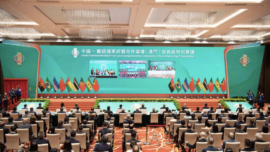If there is a matter of high social and political relevance where Macau seems to be stuck in time, that matter is, without hesitation, labour relations and regulations. The announcement that the government appears to be willing to move forward in this area should be received with some thrill. It is, however, difficult to avoid some scepticism, if not cynicism, bearing in mind the known political circumstances and the region’s history on the subject.
The government announced that it would open a tender for the realization of a study on the subject. What are the specific objectives of such a study? They are, to be as precise as possible at this point, quoting the media reports: “to assess the conditions to implement a trade union law in Macau.” Such a study, as it was further explained, is needed to “provide a scientific base” to the introduction of a law on that subject. This process should be finished in 500 days or so.
What can we say about this? The time frame indicated means that the study’s conclusions – not the approval of the corresponding legislation, in case we may harbour any doubts – would be available, optimistically, towards the end of 2018. By then, even assuming that the study team concludes unequivocally (doubling down on the optimism) the desirability (or even the viability) of that piece of legislation, other obstacles are likely to pop up. With the end of the second mandate of the Chief Executive and new elections approaching, it is not unlikely that such a sensitive matter should be seen as best avoided at that time – and the momentous decision left for the new administration.
Regardless of any future developments, what is inevitably evident is that 17 years after the Basic Law came into force, and with international treaties on the subject that are arguably applicable to Macau, the subject remains unregulated. As such, the exercise of corresponding rights cannot effectively be accomplished. And that does not seem to cause any real uproar in the local political bodies. No study will change that state of affairs and its causes.
An aside: in this and similar contexts, please stop translating whatever word is used in Chinese as ‘scientific’. There is Political Science (even if some might consider it a misnomer) and there is Science Policy – but there is no such thing as a policy that is ‘scientific’. It just sounds pompous, if not plain ridiculous.























